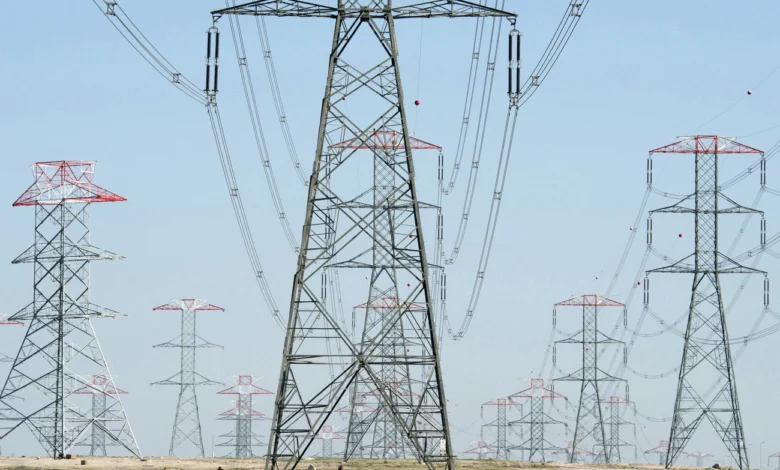
Kuwait Plans Massive Battery Storage System to Fight Power Shortages
Kuwait aims to install a groundbreaking battery storage system that can discharge up to 1.5 gigawatts to curb its growing power crisis. The Gulf state faces severe electricity shortages and negotiates this major battery storage project, which would deliver between 4 and 6 gigawatt-hours of total energy storage.
Kuwait’s power infrastructure struggles under the combined pressure of rapid population growth, urban expansion, and rising temperatures. The situation has become critical enough that authorities started implementing planned power cuts in certain areas last year. This storage facility marks a significant step in Kuwait’s broader strategy to stabilize its electrical grid. The country seeks to reduce its dependence on fossil fuels during peak periods, despite being a major oil producer and OPEC member.
Kuwait negotiates 1.5 GW battery storage project
Image Source: CHINT Global
“If implemented, it would mark one of the largest energy storage deployments in the region.” — Reuters (attributed to Kuwait Ministry of Electricity official), Reuters, global news agency
Kuwait’s electricity ministry negotiates what could be one of the Middle East’s largest energy storage projects. The battery storage project will provide between 4 and 6 gigawatt-hours of total storage capacity. This initiative serves as the foundation of Kuwait’s strategy to solve its persistent electricity shortage problems.
“It is still in the negotiation phase… the picture is becoming clearer and we may soon have an outcome from it,” stated Adel Al-Zamil, a senior electricity ministry official. The ministry also studies how these high-capacity batteries would link to the national power grid through transmission or distribution stations.
The project’s technical framework focuses on storing excess electrical energy during off-peak evening hours when power use remains low. The stored power helps meet daytime peak demands and creates a balanced load profile across Kuwait’s electrical grid.
The battery storage initiative maximizes Kuwait’s power generation potential by capturing surplus capacity that would otherwise remain unused. This system offers an innovative solution to stabilize the grid without expanding generation capacity immediately.
The ministry continues to assess this storage system’s overall feasibility. The completed battery storage project will reduce Kuwait’s dependence on fossil fuels during high-demand periods substantially.
Power shortages force Kuwait to seek urgent solutions
Image Source: Reuters
“With temperatures climbing as high as 50 degrees celsius in recent years and demand peaking at 17.7 GW in July, scheduled power cuts began two months earlier than the previous year, while unplanned outages added further strain, creating shortages of more than 1.5 GW during peak demand in May.” — Kartik Selvaraju, Senior Analyst, Rystad Energy
Kuwait faces its worst electricity crisis ever. Summer temperatures that often reach 50°C have pushed power demand to a record 17.7 GW this summer. Power shortages went beyond 1.5 GW in May alone. The authorities had to roll out blackouts in 51 areas, affecting vital residential, industrial, and agricultural regions.
Kuwait’s old power system doesn’t deal very well with current consumption patterns. The electricity load hit 17,640 megawatts as temperatures climbed. This forced the government to take extreme steps. The country introduced planned power cuts in 2024 for the first time in its history.
Several issues have made this crisis worse. The electrical grid is under tremendous pressure from quick population growth and urban expansion. The system has become more vulnerable because of delays in infrastructure maintenance. The Ministry of Electricity says these outages happen because “power plants cannot meet increased demand during peak hours”.
All the same, Kuwait is working on several solutions to fix these shortages. The country has made agreements to get 500 megawatts of electricity – 300 MW from Oman and 200 MW from Qatar. Kuwait also plans to build five large gas-fired power plants. These will add 18 GW of capacity by 2035, which will increase total gas power from the current 14 GW to more than 32 GW. This change from oil to gas will help Kuwait export more crude while securing its domestic energy needs.
Political reforms unlock stalled energy infrastructure
Image Source: ZAWYA
Kuwait’s political deadlock has stalled many important infrastructure projects, as the country went through 31 cabinets in just three decades. A major breakthrough came when Emir Sheik Meshal al-Ahmad al-Sabah dissolved parliament in 2024 for four years. This decision finally cleared the way for long-delayed energy initiatives to move forward.
The political transformation has given new life to Kuwait’s bold energy plans. The Al-Khairan power plant and the first phase of the Shagaya renewable energy project will add about 2.9 gigawatts of capacity, with contracts expected by late 2026. Kuwait Authority for Partnership Projects has started accepting bids for Al-Khairan’s first phase that will generate at least 1.8 gigawatts. The Shagaya project’s first phase (1,100 megawatts) has already completed pre-qualification.
Before these changes, Kuwait’s constitution required both government and parliament to approve mega-projects. This dual approval system often created deadlocks, and important initiatives like the proposed battery storage facilities remained on paper instead of becoming reality.
The political reset led Kuwait to create Vision 2035 – a complete reform agenda that focuses on rebuilding state authority, improving institutional performance, and speeding up development. This plan has rejuvenated many dormant projects, including Mubarak Al-Kabeer Port which had not moved forward for over a decade. The storage facility and other energy infrastructure now have a clearer path to completion.
Kuwait faces unprecedented electricity challenges today. The country plans to build a 1.5 gigawatt battery storage system that marks a crucial advancement in tackling its power crisis. This bold project can store 4 to 6 gigawatt-hours of energy and will revolutionize Kuwait’s electricity management during peak usage times.
Kuwait’s power shortages have reached alarming levels. The nation’s aging infrastructure struggles with rolling blackouts affecting 51 areas and record temperatures of 50°C. Power demand peaks of 17.7 GW have pushed the system to its breaking point. The battery storage project has become essential to stabilize the power grid.
A look at Kuwait’s broader strategy reveals a multi-layered approach to energy security. The country imports electricity from its neighbors and develops gas-fired power plants. Renewable energy projects at Shagaya show a detailed plan to resolve the crisis. The battery storage system complements these efforts perfectly and provides quick relief while other generation projects take shape.
Recent political reforms have created ideal conditions for infrastructure growth. Parliament’s dissolution removed roadblocks that stymied vital energy projects. Vision 2035 now provides the foundation to implement these solutions effectively.
Kuwait’s position as a major oil producer hasn’t changed, but its energy landscape is evolving rapidly. The battery storage initiative shows a move toward sophisticated grid management. Projects like Al-Khairan and Shagaya, combined with the storage facility, make Kuwait’s energy future look brighter than during recent blackouts. Enhanced generation capacity, better storage capabilities, and strong political support put Kuwait on track for a more resilient and sustainable power system that serves its growing population.






